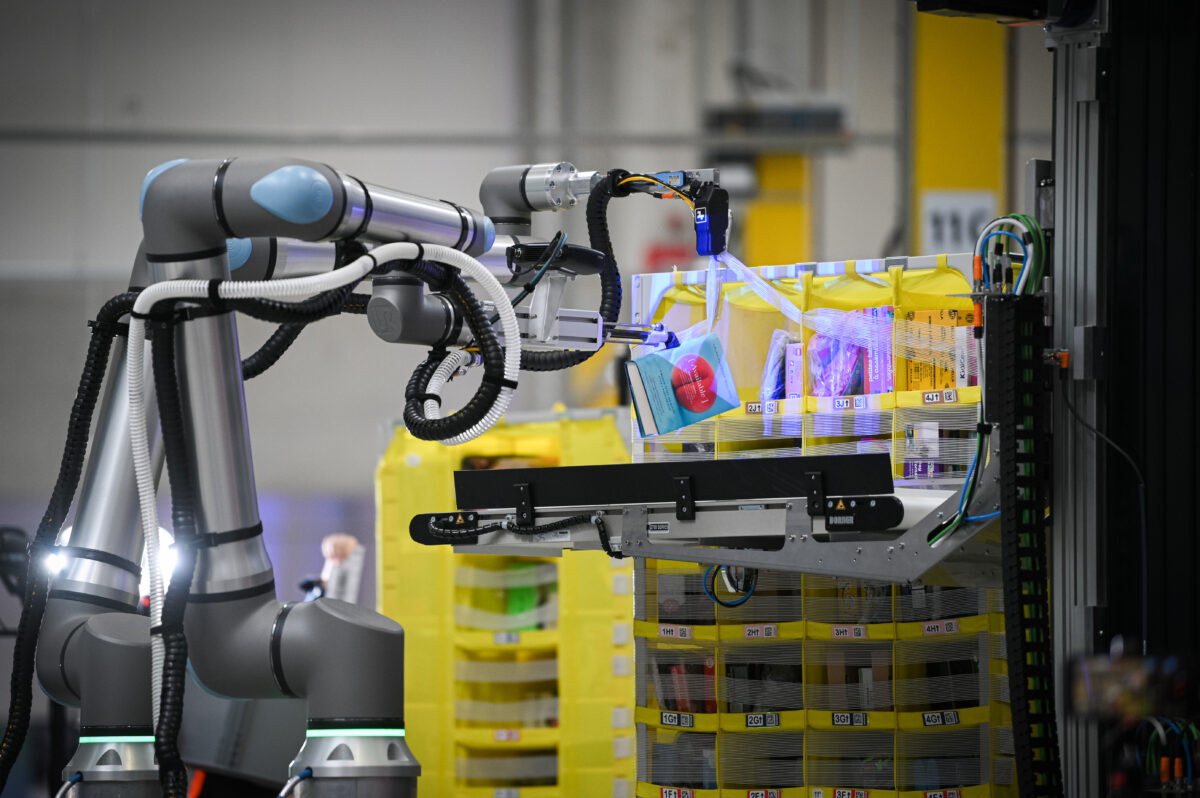How Amazon Leaders Nikki Taylor White And Obi Nwigwe Are Contributing To The Company’s Workplace Safety

Through their roles, Nikki Taylor White And Obi Nwigwe are improving workplace safety at Amazon.
Nikki Taylor White
Both share a common mission to bridge the gap in technology and lead by example, with Amazon serving as their home base to pursue this work. White, a Howard University graduate, is the global director of ergonomics within Amazon’s worldwide corporate health and safety organization. Her goals center on improving workplace safety and design on a global scale.
“It’s my priority to ensure we follow the hierarchy of controls across the ergonomics spectrum, which starts with eliminating any existing or potential hazards, and we do this by implementing automation and robotics into our processes and workspaces to create safer environments for our employees,” White told AFROTECH™.
Obi Nwigwe
As for Nwigwe, he serves as a software development manager for Amazon Robotics. He began building smaller-scale systems while pursuing an electrical engineering degree at The University of Texas at Arlington. That path led him to Amazon, where he has worked for more than eight and a half years. His team is responsible for developing software that leverages machine learning to improve packaging efficiency within Amazon’s fulfillment network, according to information shared with AFROTECH™. He is also a core member of the Project Vulcan team.
Vulcan
As AFROTECH™ previously told you, Amazon recently unveiled Vulcan, a robot that is the first to have a sense of touch due to its artificial intelligence-powered sensor. Vulcan is able to pick and stow away 75% of the items stored in Amazon’s warehouses. It also benefits employees by allowing them to spend less time on physically demanding tasks, such as reaching overhead or crouching down, and more time on reasoning and problem-solving, as mentioned by Aaron Parness, Amazon’s director of applied science in robotics and artificial intelligence.

Nwigwe’s team owns one of Vulcan’s software services in charge of its orchestration.
“It’s critical that we get safety right. Think about the interaction of a person in the loop that’s doing induct,” Nwigwe said. “We have a lot of equipment, a lot of moving pieces. It’s critical that we make sure all these things are coordinated and timed just right so that we don’t have cases where a robot is hitting another robot or it’s potentially knocking over a lot of equipment or there’s unexpected behavior for the humans that are either operating the robot or maintaining it.”
White’s work also intersects with software engineers such as Nwigwe through a global partnership vertically owned by her team that examines tech projects in the ergonomic space or has ergonomic implications.
“We do an extreme amount of sim and technical analysis. And so what that project turned into was actually creating that accessible database to know where the profiles of safety need ergonomic intervention and where those actual interventions are. And so Vulcan is perfect,” White commented. “The hierarchy of controls, elimination, substitution, repetitive job is moved to the robot, and then the interaction, the smart work, the human interaction is the side of the keypad. And I think that’s really the panacea that we’re walking towards.”
She added, “The passion project for me is really simplifying that innovative, simplified mentality. Making it accessible so that projects like the things that you guys are walking through, we understand how to help scale them and why it’s important. Again, working with software engineers and teams like Obi’s team is critical. We have to work together to make sure that our objectives are aligned and then you remove redundancy, the work scales faster, you don’t have to go back and do retrofits. And so that’s the passion behind it.”




